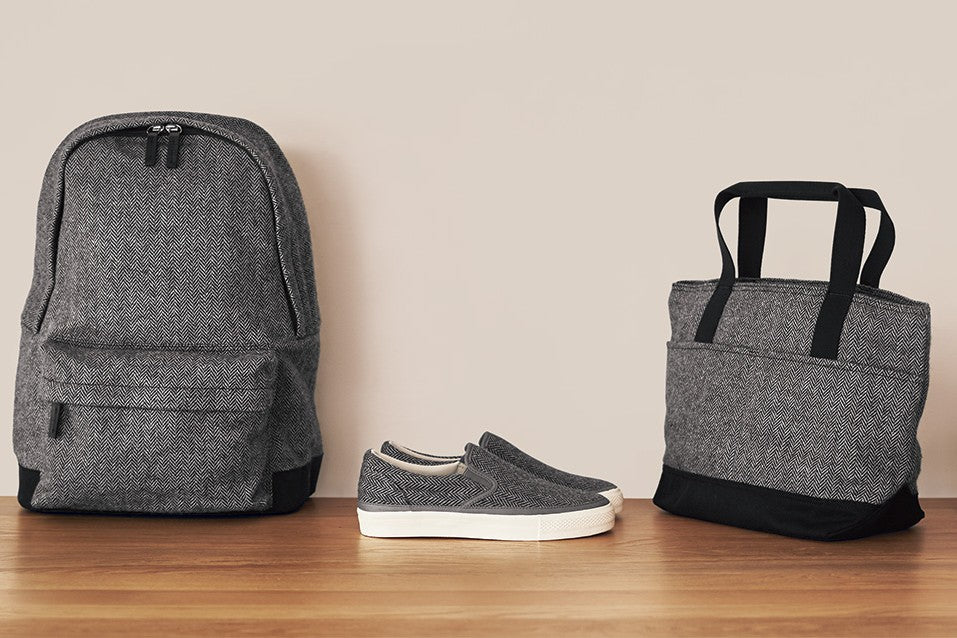
RE-MUJI

The minimalist Japanese brand MUJI has a lovely range of recycled textiles to accompany their RE-MUJI recycled materials collections. Using a traditional process employed by Japanese craftspeople for over 100 years, the aim is to restore vintage wool to be used in new garments.
MUJI originated from the Japanese supermarket chain Seiyu, which introduced a line of brandless household essentials named Mujirushi Ryōhin (no brand, quality goods). The line's plain packaging went against the consumerist boom of the 1980s, when branding was everything. This later evolved into a separate shop, MUJI, which continued this ethos of generic, simple and low-waste design.
This philosophy of low-waste was applied by Japanese textile designer Reiko Sudo of Nuno corporation, who collaborated with MUJI for the RE-MUJI collections. Since 2008, she has advised on the brand’s textiles and RE-MUJI products, which use recycled materials. This latest line of recycled woollen garments is made up of thirteen products, including jumpers, bags and accessories. They have been created using wool scraps and discarded woollen clothing.

To perfect the techniques used in creating these garments, Sudo travelled to the prefecture of Aichi, in Japan, which has historic connections to the wool industry. Local artisans washed and stripped old wool into pieces, reworked the scraps into thread, then wove the wool thread into new textiles. This technique originates from the 19th century, when sheep were much more scarce in Japan. Old wool pieces from other countries would be separated out by colour and then re-purposed.
It took nearly four years for Sudo to obtain all of the wool needed to create the collection, as reclaimed wool is in limited production. However, the result is worth the time and effort; the Reclaimed Wool Collection is simple, elegant and demonstrates a respect for tradition and the environment.
Blog post by Jessica Edney. Read more about sustainable textiles in Laura Shirreff's article Made In China in the East issue. Subscribe to Selvedge here.
